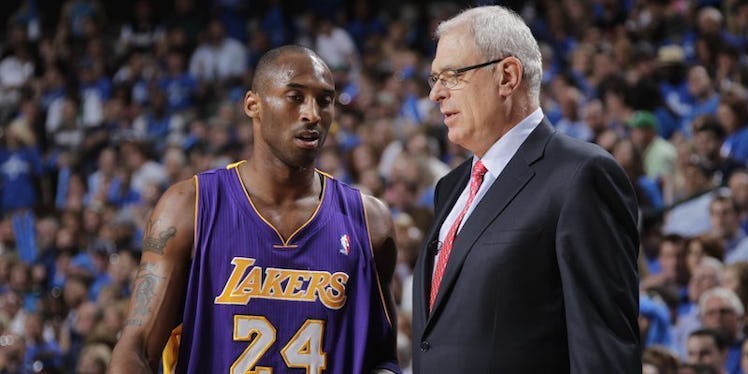For humans, there are few things that can top the excitement of playing sports.
To be young and running, jumping and maneuvering with the intensity that only comes with being at your athletic peak is, quite frankly, an inexplicable joy.
It's just so damn fun.
But, as exciting as actually playing a sport can be, there is another aspect of participating in sports that is just as amazing -- just in a different way.
Being a coach offers an experience that is as fulfilling as they come, and whether you've coached in something small, like a rec league, or at the highest level, you'll recognize these factors as 10 reasons that is the case:
It keeps you young.
It's nearly impossible to teach someone the fundamentals of a sport without flashing back to your own first experience.
You might say it's even harder to constantly be around a group of younger people without their ways rubbing off on you.
We can go on and on about the intricacies of this point, but if you really are the company you keep, as the saying goes, coaching is a surefire way to keep you young.
You get to stay close to the sport you love.
If you even have the urge to get into coaching, it means you have a love for the sport in the first place.
Like anything you love in life, you will inevitably miss the routine of playing and competing once your days of doing so are gone.
Being a coach, though, gives you a great of an opportunity to return to your youngest days.
You gain a second family.
Rarely will you have a chance to have a job at a place where you can regard the people you're with as a family. But, when you become a coach, it can almost feel like adopting a second family.
You become used to being around people when they're the happiest, most comfortable and most at ease. That creates the type of intimate bond you can only liken to a family.
Your success becomes others' success.
As an individual, you could always do the best job possible and still, the others around might not succeed.
Practically every athlete knows how that feels. But, as a coach, if you do the best job possible, it's a given that others will benefit from your personal success.
And at that point, it's not even personal. It's shared.
You can make up for your mistakes.
You can tell your friends, based on past experiences, they shouldn't entertain this guy or that girl and, chances are, they still won't listen.
As a coach, though, when it's your actual responsibility to constantly help others improve in certain aspects, you have a very real chance at correcting your own mistakes by allowing others to benefit from them.
You can become a kid's favorite teacher.
When you take the time to get involved and support something someone younger than you cherishes, which is essentially what coaching demands, they appreciate you for it.
You'll have their ears, too, which gives you the opportunity to teach them things that are important in life and not just in the field of competition.
If you're successful in doing so, you're a shoo-in to become their favorite teacher.
You become part of others' most cherished memories.
Ask anyone what his or her most cherished moments in life are and, if you're talking to an athlete, he or she will be likely to draw a memory from old playing days.
For some people, it's that special embrace that only comes with winning the big game or after capturing the big moment.
For others, it's whatever instance captured the euphoria of their biggest competitive accomplishments.
Whatever the case, being a coach creates special memories and you become part of others' best memories as well.
You teach people about mental strength.
Sure, execution is a big part of what goes into winning, but it definitely isn't everything. In life, being great at anything takes mental strength (which itself comes with a whole lot of intangibles).
Being a coach gives you the chance to illustrate, within the context of a certain sport, just how much those intangibles outside of talent are crucial to a person's success on and off the field.
You can bring people together.
At minimum, good coaching can help a group of people come together and create a bond exclusive to them.
There are other times where it can be the source of a community coming together.
Either way, when you get everyone behind one cause, you have the power to bring people together. And at a time when people can find any little thing divisive, that's no small feat.
It makes you a better person.
With coaching, it's hard not to feel a responsibility to not say or do certain things, if not for anything else than for the fact you don't want the players you care about to take on your behavior in a way they can't handle.
Sure, no one is perfect, but you want to try to be in order to give the people looking up to you something to aim for. Doing that can only make you a better person.
